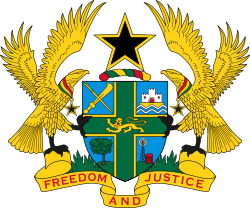Presidential election | |||||||||||||||||||||||||||||
| |||||||||||||||||||||||||||||
| |||||||||||||||||||||||||||||
 Results by region | |||||||||||||||||||||||||||||
| |||||||||||||||||||||||||||||
| |||||||||||||||||||||||||||||
All 140 seats in Parliament 71 seats needed for a majority | |||||||||||||||||||||||||||||
This lists parties that won seats. See the complete results below. | |||||||||||||||||||||||||||||
 |
|---|
| Constitution |
General elections were held in Ghana on 18 June 1979, with a second round of the presidential election on 9 July 1979. The presidential election resulted in victory for Hilla Limann of the People's National Party, who received 62% of the vote in the run-off, [1] whilst his PNP won 71 of the 140 seats in Parliament. According to one scholar, the elections were conducted "in as free and fair a manner as might be considered humanly possible under local conditions" and the losing candidates publicly accepted defeat. [2] Around 5,070,000 people were registered to vote. [1]
Contents
The Electoral Commissioner during the elections was Joseph Kingsley-Nyinah, an Appeal Court Judge who was appointed by the Supreme Military Council (SMC). [3] Although the SMC was overthrown on 4 June 1979, the Armed Forces Revolutionary Council military government which replaced it allowed the elections to proceed just two weeks later.

